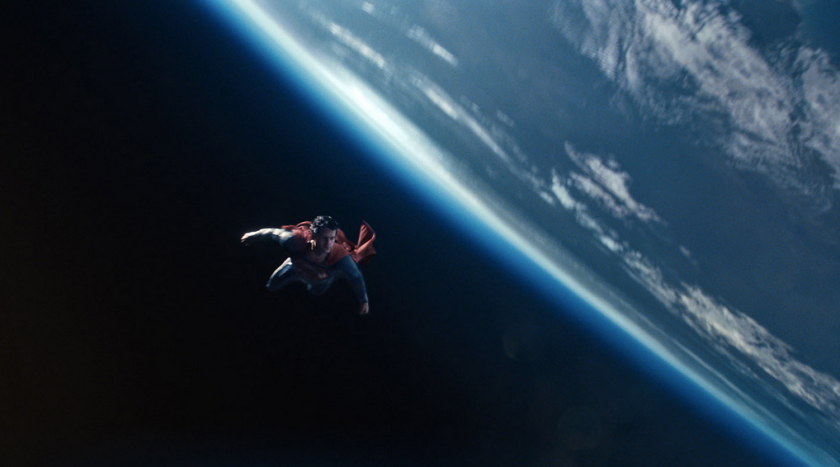Earlier this summer, my husband and I went to see “Man of Steel.” It was the first Superman movie I had ever seen.
For over seven years now, ever since we met in college, part of our relationship includes him introducing me to elements of American popular culture that we keep discovering I lack exposure to. Gene, being American, was raised knowing the Superman mythology. For me, being born and raised in Taiwan, it felt foreign.
The movie left me feeling confused and not quite sure what to think of the genre. It’s tough to make Superman relatable, given that he’s a nearly invincible alien, while we viewers are merely human. But after the film, I read The New York Times review, which framed Superman as the story of an immigrant.
“It’s a story that begins with the launching of the spaceship and continues through a child’s pained attempts to assimilate and a young man’s sense of not belonging,” the author wrote. “This most American hero is also an alien yearning to breathe free.”
Given my background, I find looking at Superman as a Third Culture Kid even more resonant. Even though he is from Krypton, being raised human means that no matter how alien he is by birth, Clark Kent feels an abiding connection to his host culture: Earth. Even so, feeling at home in this host culture is a struggle, but so is identifying with Krypton, his origin planet. These paired quandaries are the mark of being a Third Culture Kid.
Clark Kent is a hidden immigrant on Earth. On the surface, he looks like he belongs. This is all too familiar to Third Culture Kids when we’re in our origin cultures. When we go somewhere where it looks like we belong, but feel deep inside that we’re from elsewhere AND no one else can tell… that’s, oddly, like being Superman.
Sometimes, it’s easier to hide what’s special. To be from Kansas, not Krypton. I’ve occasionally told people I’m just from the Midwest to avoid yet another conversation about how interesting it is that I’m from Taiwan. Otherwise, I’m peppered with the same questions each time.
“So what was it like growing up there?”
“Say some Chinese.”
“So what’s it like being an alien?”
“Show me some alien powers.”
But even in Taiwan, I get similar reactions, except that I can’t conveniently blend and hide. I may feel happiest in Taiwan, identify deeply with Taiwan, have grown up in Taiwan, and love the country more than anywhere else in the world, but I will never been seen as Taiwanese. I don’t look the part. My Taiwanese and Mandarin, while good enough, are not nearly as fluent as as my English. I attended international schools, and then left Taiwan to study abroad in America for college and graduate school.
When I’m back in Taiwan, just about every time I open my mouth to say something in Mandarin or Taiwanese, I have to explain to locals how it is I’m able to speak their “foreign” language.
“What on earth is someone like you doing here?”
“Why do you look white, but sound Taiwanese?”
“Are you mixed race?”
This is the hardest part about it all, having to explain every day that yes, this is my home, even if I don’t look like I belong. But if given the chance to fully integrate, to be adopted, to blend and live as an average Taiwanese person, would I actually take it? Probably not.
Is it because growing up white in Taiwan made me feel like I had superpowers? I could read an English novel faster than any kid I knew! Benefit from preferential attention some places! Fly off to America for the summer to see my grandparents!
Yet Clark Kent knows that all that makes him Super on Earth disappears when exposed to the atmosphere of his native planet. Growing up without exposure to its strong gravitational field and atmosphere, his body can’t cope with the differences. When Kryptonians arrive at Earth looking for him, he learns that what counts for super-strength on Earth seems pathetically feeble to the residents of that world.
Sometimes, in America, I’ve felt pathetically feeble too. As a child, I was unable to figure out how a mailbox opens (they just have slots in Taiwan!). I’ve gotten lost trying to navigate the overwhelming aisles of a grocery store. I’m still unfamiliar with the traditions of American holidays like Thanksgiving and felt totally lost during the traditional activities at my cousin’s wedding shower.
Superman and I face the same conundrum on different scales: we’re Super within our host cultures, weak and confused our origin cultures. How easy would it be to equate our love of our host cultures with our love of being special, of being Super?
I sincerely hope that my ambivalence about integrating fully into Taiwan is because being from two worlds is what makes me who I am. Yes, I am an alien no matter where I go on this planet. But I wouldn’t be me if I was one or the other. I am perpetually both and neither. A hidden immigrant in America. A foreigner in Taiwan. It is heartbreaking, belonging nowhere. It is powerful, belonging elsewhere.
A version of this essay was originally published on Katherine’s blog, 天恩寶卷.
Image courtesy of Warner Brothers Pictures.
